Introduction: In this article – to help celebrate Independence Day on July 4 – Melissa Davenport Berry profiles Isaiah Thomas, Revolutionary printer and publisher, and provides genealogy. Melissa is a genealogist who has a website, americana-archives.com, and a Facebook group, New England Family Genealogy and History.
Today I continue with my “Spirit of ’76” series in honor of Independence Day, aka “Fourth of July,” featuring a Patriot pressman who achieved Revolutionary War fame with his hot press releases, thus preserving the history of America’s fight for freedom. A true Son of Liberty: Isaiah Thomas (1749-1831).
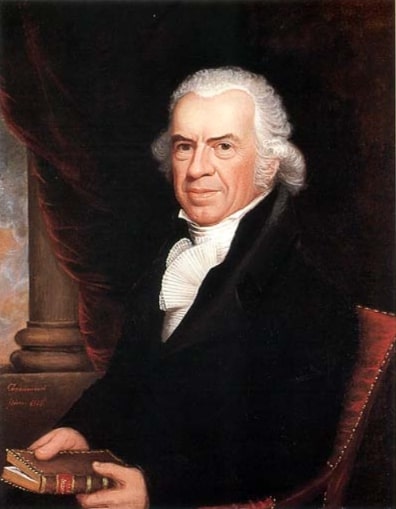
A Patriot Pressman
On 13 April 1975 the Knoxville News-Sentinel published an article on the Battle of Lexington and Concord, the first in a year-long series of articles to celebrate the Bicentennial of the United States, and explained:
The accompanying article on the Battle of Lexington and Concord is the first of a series on “The Press and the American Revolution” jointly sponsored by the American Antiquarian Society (AAS) and the American Newspaper Publishers Association (ANPA) Foundation.
Alongside that article, the Knoxville News-Sentinel also published an article about the Massachusetts Spy, a newspaper founded by printer and publisher Isaiah Thomas in 1770. Thomas later founded the American Antiquarian Society in 1812.
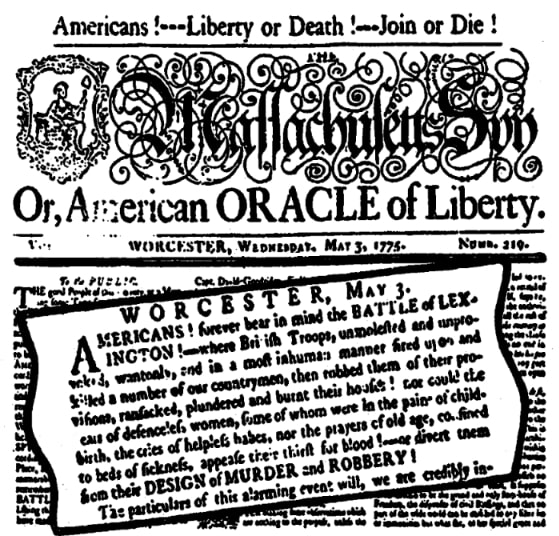
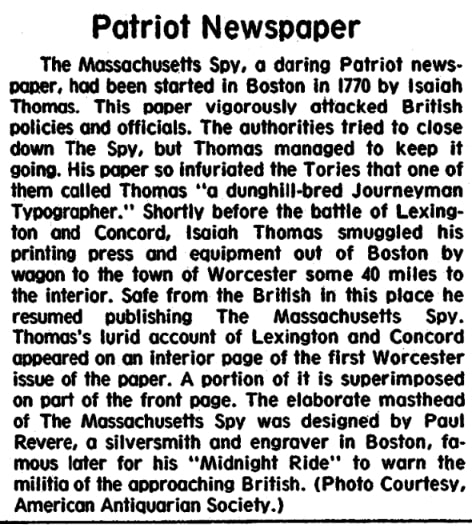
This article reports:
Patriot Newspaper
The Massachusetts Spy, a daring Patriot newspaper, had been started in Boston in 1770 by Isaiah Thomas. This paper vigorously attacked British policies and officials. The authorities tried to close down The Spy, but Thomas managed to keep it going. His paper so infuriated the Tories that one of them called Thomas a “dunghill-bred Journeyman Typographer.” Shortly before the Battle of Lexington and Concord [which he participated in], Isaiah Thomas smuggled his printing press and equipment out of Boston by wagon to the town of Worcester some 40 miles to the interior… The elaborate masthead of the Massachusetts Spy was designed by Paul Revere, a silversmith and engraver in Boston, famous later for his “Midnight Ride” to warn the militia of the approaching British.
Further sources say Thomas’s printing shop was labeled a “sedition foundry” and members of the Sons of Liberty sometimes met in his shop.
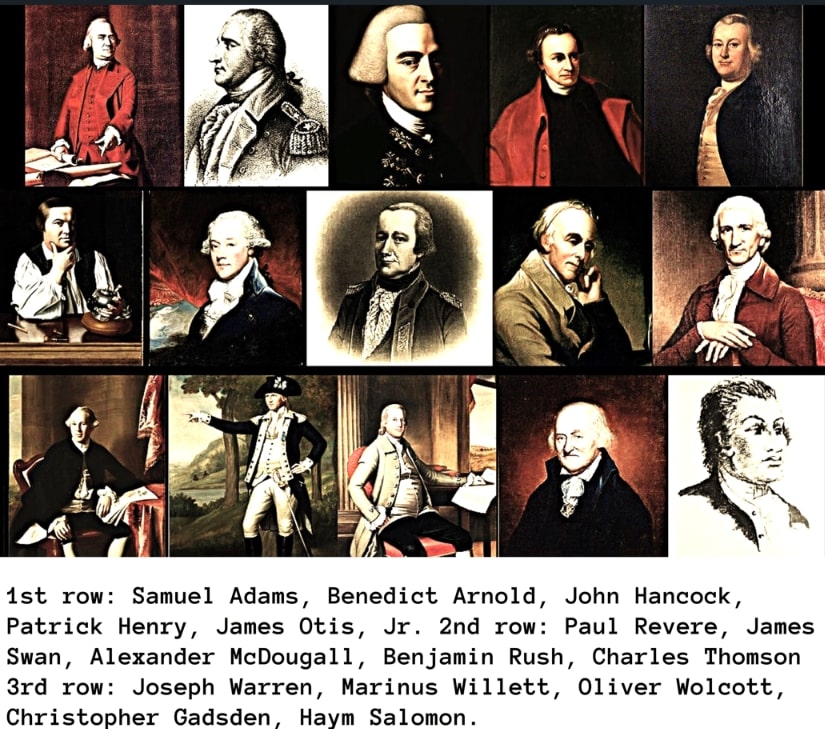
Here is the press Isaiah Thomas used to print his newspaper, the Massachusetts Spy, which roused Americans throughout the Colonies to rebel against British authority and inspired them to seek independence.
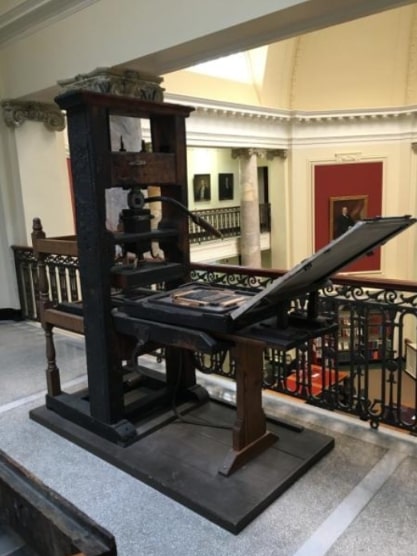
Fearing his press would be impounded, Thomas’s friends, including John Hancock, Joseph Warren, and local Worcester blacksmith Timothy Bigelow, urged him to remove it from Boston for safekeeping inland.
On the evening of 16 April 1775, Thomas packed up his press and, in his own words, “stole it out of Boston.” He rowed it across the Charles River, put it on a cart, and sent it to Worcester.
Thomas took lodging at the home of Elijah Dix, an apothecary, and he reassembled his printing press in the basement of Timothy Bigelow’s tavern in Worcester and was back in business.
Three days later, on 19 April 1775, the Battle of Lexington and Concord started the American Revolution. In the words of Samuel Adams to John Hancock, “What a glorious morning for America!”
Thomas published some of the most detailed accounts of these skirmishes and some will appear in the next story.
Isaiah Thomas Genealogy
Isaiah Thomas was the son of Moses and Fidelity Thomas and the great grandson of Rev. George Burroughs (executed for witchcraft in 1692), through his daughter Elizabeth Burroughs who married successful merchant Peter Thomas.
Unfortunately, Thomas’s father had partaken of too many spirits and caused the family to fall into poverty.
However, little Thomas was ambitious and at the age of seven, with his mother’s encouragement and the aid of Boston’s Overseers of the Poor, he was apprenticed in 1756 to Zechariah Fowle, a Boston printer. Thomas went on to form a partnership with him in 1770.
Isaiah made a fortune in the printing and publishing business and later founded the American Antiquarian Society in Worcester, preserving the printing record of the young republic.
Isaiah married Mary Dill and 2nd his cousin, Mary (Thomas) Fowle, widow of Isaiah Fowle. His son Isaiah Thomas Jr. (1773-1819), also a printer and publisher, married Mary Weld, daughter of Edward and Hannah (Dyer) Weld, a great granddaughter of Mayflower passengers Richard Warren and his wife Elizaeth (Walker) Warren.
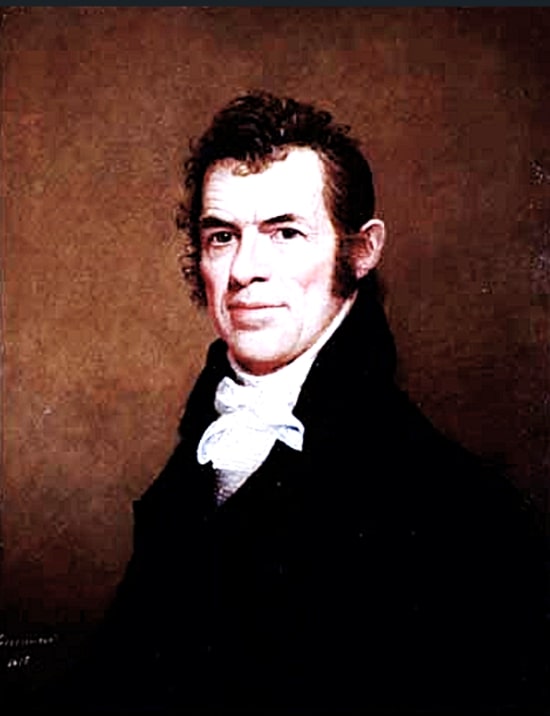
Isaiah Jr. and Mary (Weld) Thomas left several descendants, including three daughters who married Crocker brothers born to William Augustus and Sarah (Ingell) Crocker, descendants of Mayflower passengers Thomas Rogers, John Howland, and Elizabeth Tilley:
- Frances Church Thomas (1800-1860) married William Allen Crocker.
- Hannah Weld Thomas (1802-1827) married Rep. Samuel Leonard Crocker.
- After Hannah’s death in 1827, Samuel married her sister Caroline Thomas (1802-1875) in 1828.
Other children born to Isaiah Jr. and Mary:
- Mary Rebecca Thomas (1799-1859) married Pliny Merrick.
- Augusta Weld Thomas (1801-1822) never married.
- Isaiah Thomas III (1805-1862) married Mary Ann Reeder.
- Edward Isaiah Thomas (1811-1850) married Harriet Putnam Brownell.
- Judge Benjamin Franklin Thomas (1813-1878) married Mary Ann Park.
To be continued…
Explore over 330 years of newspapers and historical records in GenealogyBank. Discover your family story! Start a 7-Day Free Trial
Note on the header image: “The Spirit of ’76,” by Archibald Willard. Credit: Wikimedia Commons.
Related Article:
